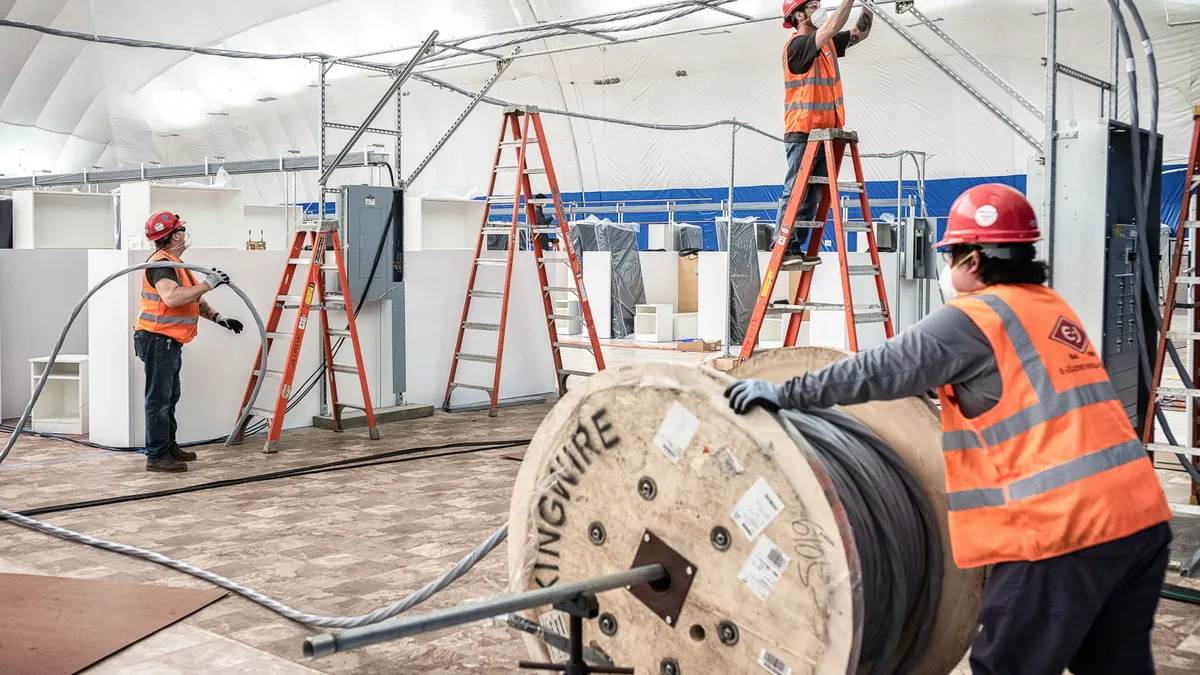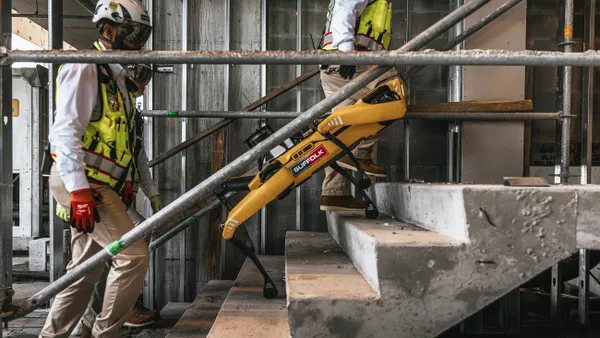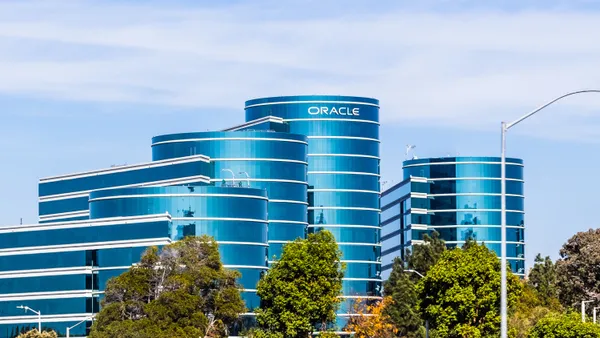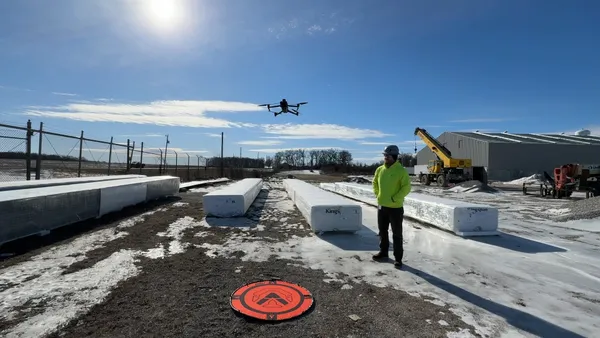Dive Brief:
-
Tech firm Sixgill and AEC company Haskell, through its subsidiary Dysruptek, have joined to develop several tech programs aimed at solving AEC industry challenges.
-
This latest venture between the two companies was a trial to develop and deploy new jobsite sensor data automation technology, which tracks worker movements in relation to potentially dangerous situations with jobsite equipment. Next up is a trial that will turn camera video into "actionable data and operational intelligence."
-
Sixgill and Haskell said their collaboration will provide unequaled visibility into the relationship between workers, equipment and supplies and that by automating jobsite sensor data, the AEC industry will be able to "more easily monitor and manage tasks, compliance, equipment utilization and much more."
Dive Insight:
Construction companies are often at the forefront of tech development, benefiting tech partners like Sixgill the by providing their depth of practical experience. And what better proving ground for a new technology than a willing industry partner?
But sometimes construction companies take it upon themselves to develop their own proprietary technology.
For example, Skanska regularly develops apps for its employees. One such app was developed while Skanska was working next to a neonatal unit at Tampa General Hospital in Tampa, Florida. Skanska and the hospital were concerned about how construction could impact newborns, so, the company, in collaboration with Duke University, developed a sensor-based monitor that was linked to an iPhone app so that the hospital staff and project managers could keep track of dust and noise levels at all times.
Hensel Phelps has made inroads with drone technology and recently secured a waiver from the Federal Aviation Administration (FAA) to fly parachute-equipped drones over populated jobsites. General FAA regulations prevent drone use over people, so Hensel Phelps collaborated with ParaZero’s SafeAir Parachute System and the FAA for more than a year to develop a strategy that would allay the administration's safety concerns.
Meanwhile, some construction companies are focused on new building technologies. General contractor Skender developed a significant modular manufacturing and construction business. The company recently opened a 130,000-square-foot factory in Chicago that uses BIM techniques and lean manufacturing processes in addition to modular fabrication. Skender's first big contract using the Chicago facility is a deal to produce 10 modular apartment buildings for developer Sterling Bay. The two are also planning to build a seven-story, 83-unit modular apartment building in Chicago in early 2020.














